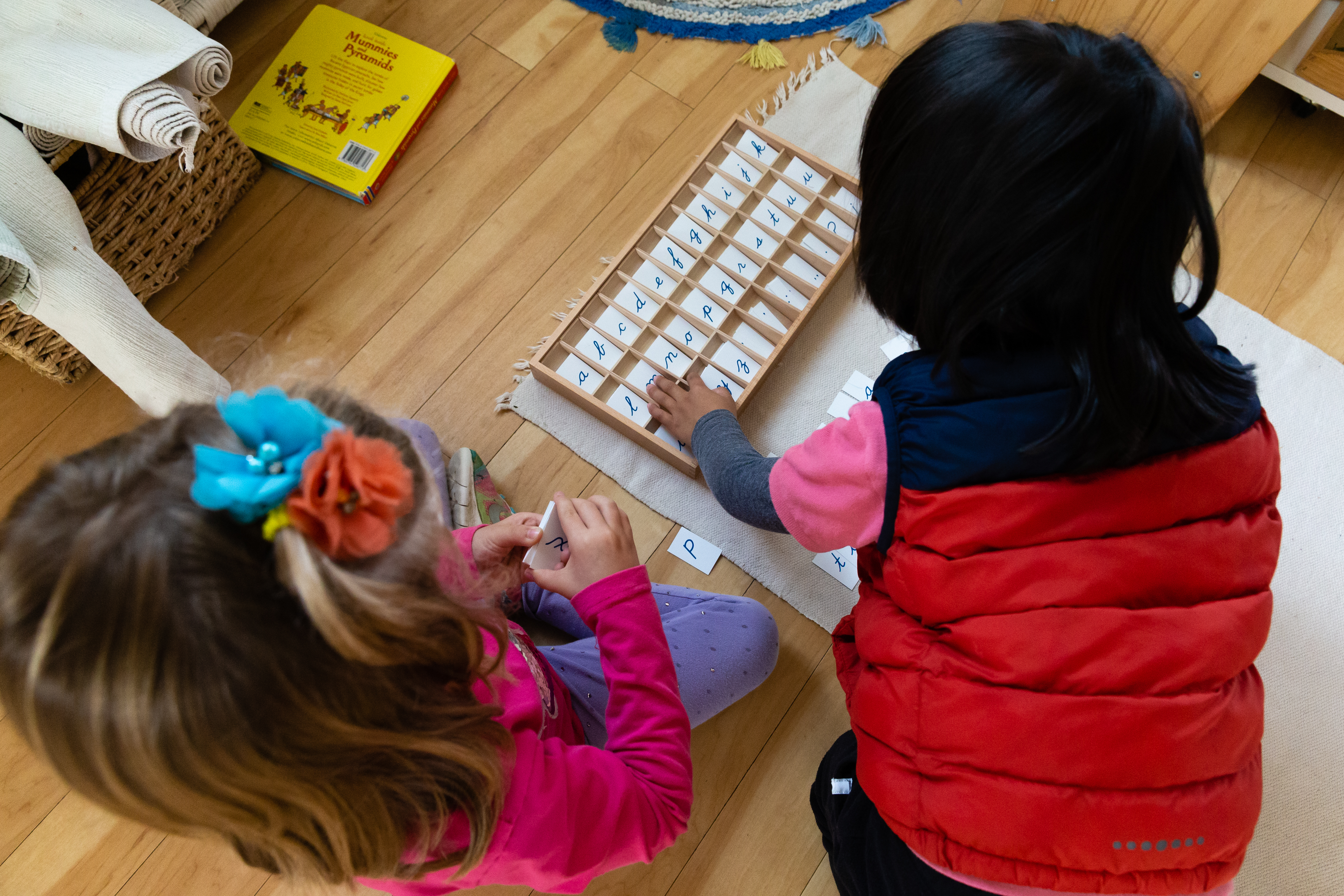(858) 759-0631
As I sat down to present a lesson to one of our friends in my Primary Montessori classroom, in the corner of my eyes I saw one of my three-year-old children walking around. She stopped in front of a rug which had a few Number Rods out and its matching Number Cards. Two other children were working with them and in the process of putting their lesson away. M, my three-year-old child, decided to pick up a number card. Looks at it and places it back down. She then took another one and this time she decided to keep it with her. She began walking around the classroom again with the number card in her hand. A friend nearby noticed what happened and kindly reminded her that it was another friend's lesson and that she's not supposed to touch it. M continued to walk. At this point, I had my back against where she was and couldn't observe what was happening. All I hear were quiet voices communicating with each other which I could barely understand, yet it seemed very calm. A couple of minutes later, M passes by my table followed by the older child who was working with the lesson. M returns the number card on the rug and with the sweetest voice, the older child says, "Thank you M!" M smiled and walks away. The two other girls continue to clean up their work.
The whole time I had the urge of wanting to intervene and "correct" M for doing what she was "not" supposed to do. However, I knew how critical it would be if I did stop and leave my presentation so I decided to observe quietly while I went on with the lesson. In the end, I was glad that I did not interrupt as I would've missed what I've just experienced. It was quite exquisite! It made me then realize how it was so easy for us adults to feel the urge to intervene and interrupt any situations that may seem to need us when in reality the children themselves have the power to resolve situations amongst themselves.
We often jump in right away to do things, say things and even figure things out for the children. And most of the time we are doing this out of love but if we think about it, trusting the child to do the right things on his own, to say the right words on his own, and to figure things out on his own is also an act of love. There are endless things we can teach our children but they are a few that they can only learn through experience.
The children understand that we are always there for them to support. They respect us in that way. Why not return the respect and have faith that they can figure things out on their own and if they don't seem to know how, give them tools on what to say or how to deal with situations so that next time they will have a better idea on how to deal with things on their own. There are no greater compliments we can give to the children to make them feel proud and confident of themselves other than the children feeling it on their own through their own experiences.
As Maria Montessori said with regards to social development and allowing the children to solve their difficulties by themselves, "It gives the children great pleasure to face them." There's a great blog post written on Montessori.com by Miss Kari Ewert-Krocker, a Primary lead teacher at Arbor Montessori School in Decatur, Georgia, called Making Space. In her writing, she pointed out how critical it is to include the children in the family "community" at home. She wrote, "Serve the child’s basic instinct to fulfill their own needs by making space for them in your home and your community." When a child sees that your family trusts them and believes they are capable of helping with dinner, or loading the dishwasher, or setting the table, the effect is much more profound than any praise you could offer. Without it even being spoken, the child knows: I am valued in my family, and I am able to contribute.
It is a nice read so please enjoy!
- Ms. Vicki, Bumblebee Teacher
Blog Cateogry:
Featured Image:

